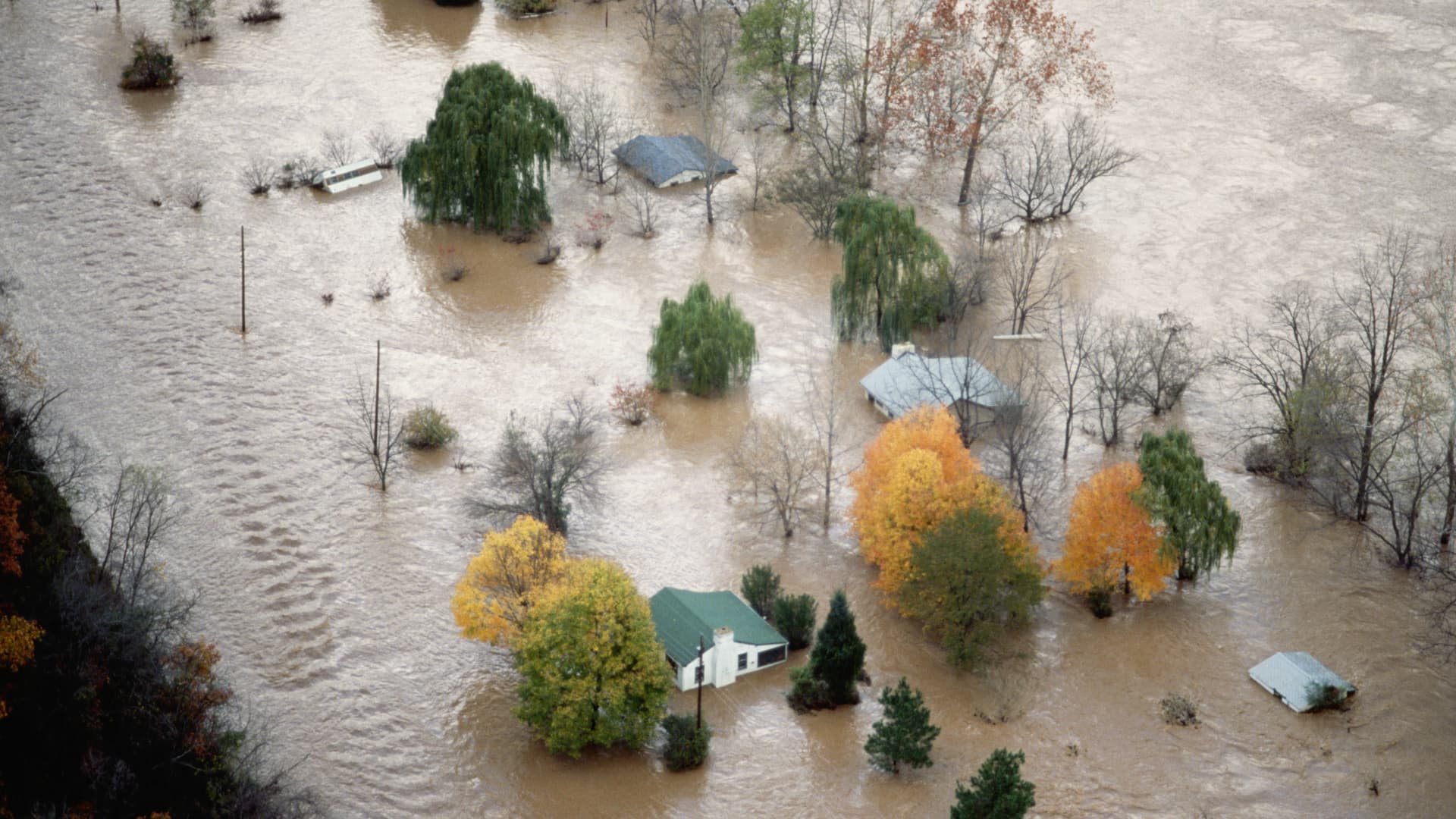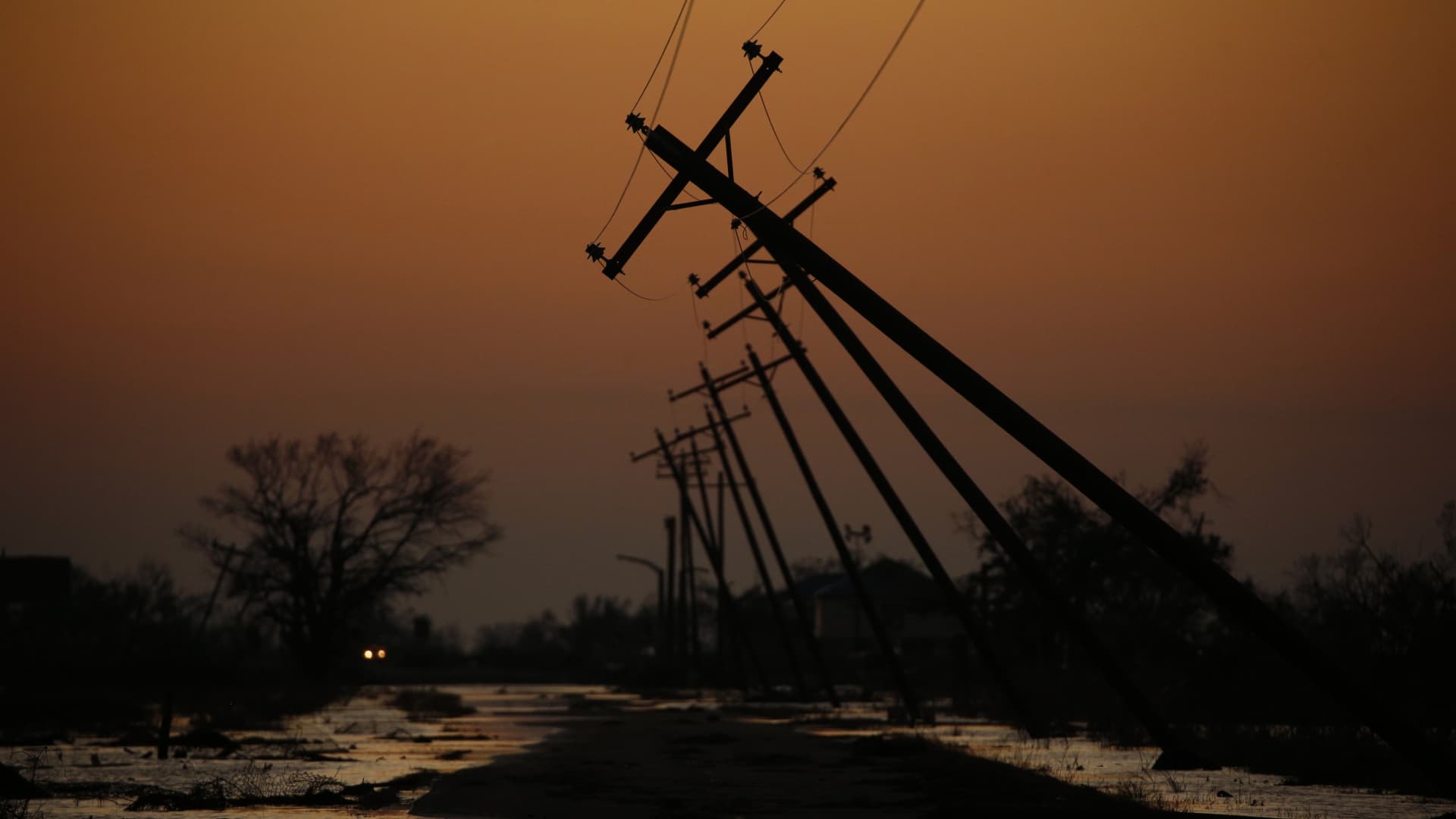
- Climate change costs the U.S. about $150 billion a year. That toll is expected to worsen.
- Extreme weather events may lead people to evacuate, causing costs related to transportation, lodging and employment, for example.
- Health costs, insurance rates, food prices and property damage will also likely increase.
- There are some steps to take to prepare, experts said.
The following is an excerpt from "This week, your wallet," an audio program produced by CNBC's Personal Finance team. Listen to the latest episode here. [Editor's note: Audio clip begins at the 2:33 minute mark.]
Climate change has been described as a ticking time bomb, the threats of which extend beyond ecosystems and biodiversity to big financial impacts on households and the U.S. economy.
Those financial costs are largely the result of extreme weather events.
The White House issued a report last week — the Fifth National Climate Assessment, issued every four to five years by the federal government — warning that heat waves, heavy rains, drought, hurricanes, floods and wildfires "are becoming more frequent and/or severe," with a "cascade of effects" in all areas of the U.S.
"It's no longer just a problem for Florida, or just a problem for Louisiana and New Orleans," said Andrew Rumbach, senior fellow and co-lead of the climate and communities program at the Urban Institute. "More and more people are experiencing these extreme events and they carry all kinds of different costs, both direct and indirect, for those families."
Here's what to know, according to Rumbach and David Pogue, host of the podcast "Unsung Science" and author of "How to Prepare for Climate Change: A Practical Guide to Surviving the Chaos." Both experts were interviewed by CNBC during a recent discussion about climate change and its impact on personal finance.
We already feel the impact — and it's likely to worsen

Feeling out of the loop? We'll catch you up on the Chicago news you need to know. Sign up for the weekly> Chicago Catch-Up newsletter.
Weather-related disasters cost the U.S. at least $150 billion a year, according to the White House report, which calls that estimate "conservative."
Money Report
The U.S. now experiences a billion-dollar disaster every three weeks, on average; during the 1980s, that happened every four months, the report notes.
The economic toll — due to such things as water stress, agricultural loss, tourism impacts, falling real estate value, and property and infrastructure damage — is expected to grow.
"Over time, each incremental increase in climate change is going to up the economic cost bit by bit," Rumbach said.
Every additional degree of global warming translates to "increasingly adverse consequences," the White House report said. For example, warming by 2°F is projected to more than double the economic harm from 1°F of warming, it said.
The effects can be 'weird and unpredictable'

Climate change's impacts can be "weird and unpredictable," Pogue said.
"I prefer the term 'global weirding,' because warming is only just part of it," he said.
For example, more than 3 million U.S. adults reported being displaced from their home by an extreme weather event just within the past year, Rumbach said, citing data from the U.S. Census Bureau's Household Pulse Survey.
In other words, 1 in 70 adults were displaced because of events such as hurricanes, floods and fires, according to an Urban Institute report. Many of them were away from their homes for less than a month, but others were away for at least six months.
Even absent property damage, an evacuation leads to transportation costs, hotel costs, and time away from work, which may disrupt pay and workplace benefits, Rumbach said.
"All those costs really add up," he said.
Further, for every additional "hot day" per year, especially in Western states, the prevalence of workplace injuries increases by 5% to 15%, Rumbach said, citing peer-reviewed scientific analyses. There's also $10,000 in additional emergency room costs per 100,000 people, especially among the elderly, he said.
Plus, for every 1% decline in crop yields, there's an estimated 0.1% out-migration of the population — a significant impact both for places losing people and for those receiving them, Rumbach said.
Declining agricultural output may fuel higher food prices, experts said, and greater property damage will likely fuel higher insurance rates.
There are ways consumers can prepare

Americans may frequently hear about ways to reduce their carbon footprint. But there are also steps they can take to prepare for the worsening effects of climate change.
"Governments and corporations have been adapting for a long time: That's why they build sea walls, and Starbucks is finding new mountains to grow coffee on," Pogue said. "But nobody ever talks about the little guy."
The first thing to do, Pogue said: Look at your homeowners or renters insurance policy.
"You probably bought it years ago, trying to make it as cheap as possible," he said. "But things have changed, and I think a lot of people are stunned to find out that homeowner's insurance does not cover flooding. It just doesn't."
Those with renters or homeowners insurance should make sure they're not underinsured, Rumbach said.
Prospective homebuyers can consult tools to choose homes in areas with reduced climate risk, he added. For example, Redfin offers climate risk assessments based on geography, he said.
There are also potential ways for investors to bolster their investment portfolio and have a positive impact on the environment, Pogue said.
Supporting an industry or company that's "green" is "in effect helping everyone," he said.
The best approach wouldn't be to invest broadly in solar and wind companies, for example — those are commodities that keep getting cheaper, Pogue said.
Instead, it may involve investing in utility companies that get all their electricity from renewable energy sources, Pogue said. Thirty-eight states now have mandates about getting a certain amount of power from renewable energy, he added.
Investing in the electric-vehicle revolution may include buying into companies that produce electric car batteries or those that mine lithium, a key component in electric car batteries, for example, he said.






